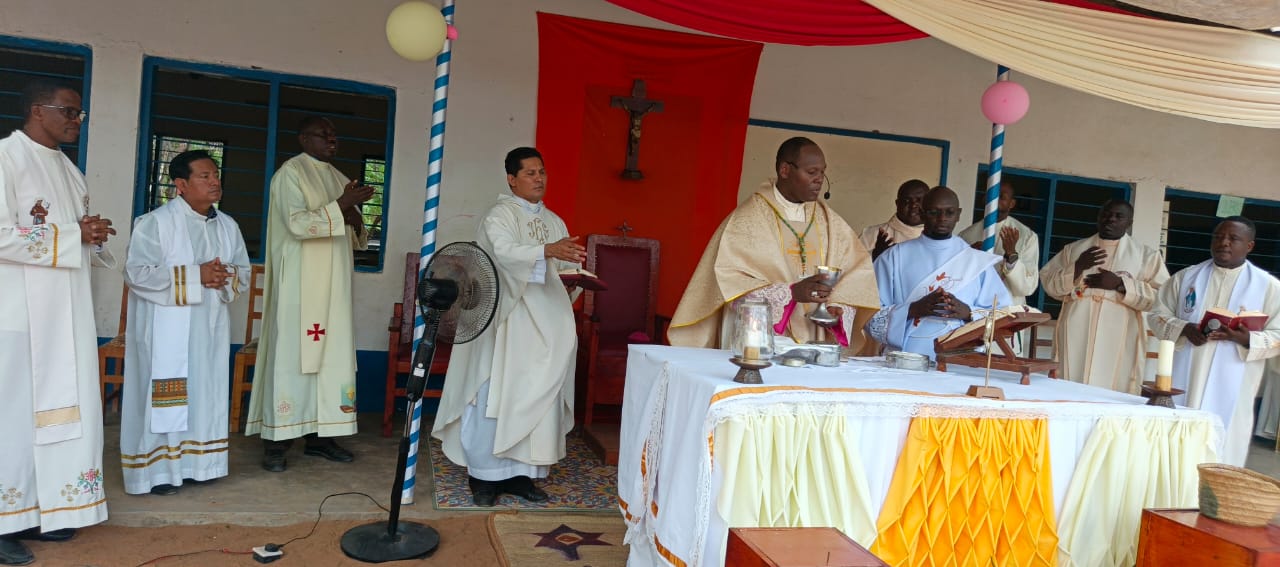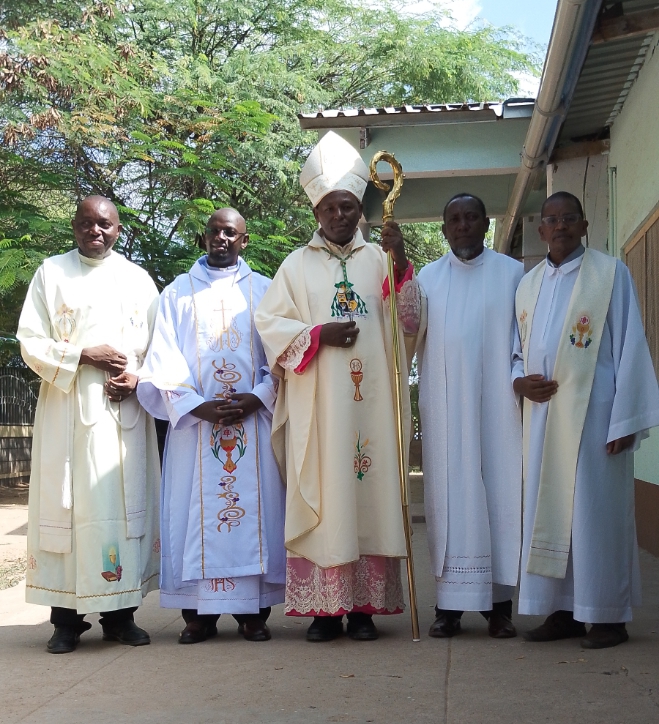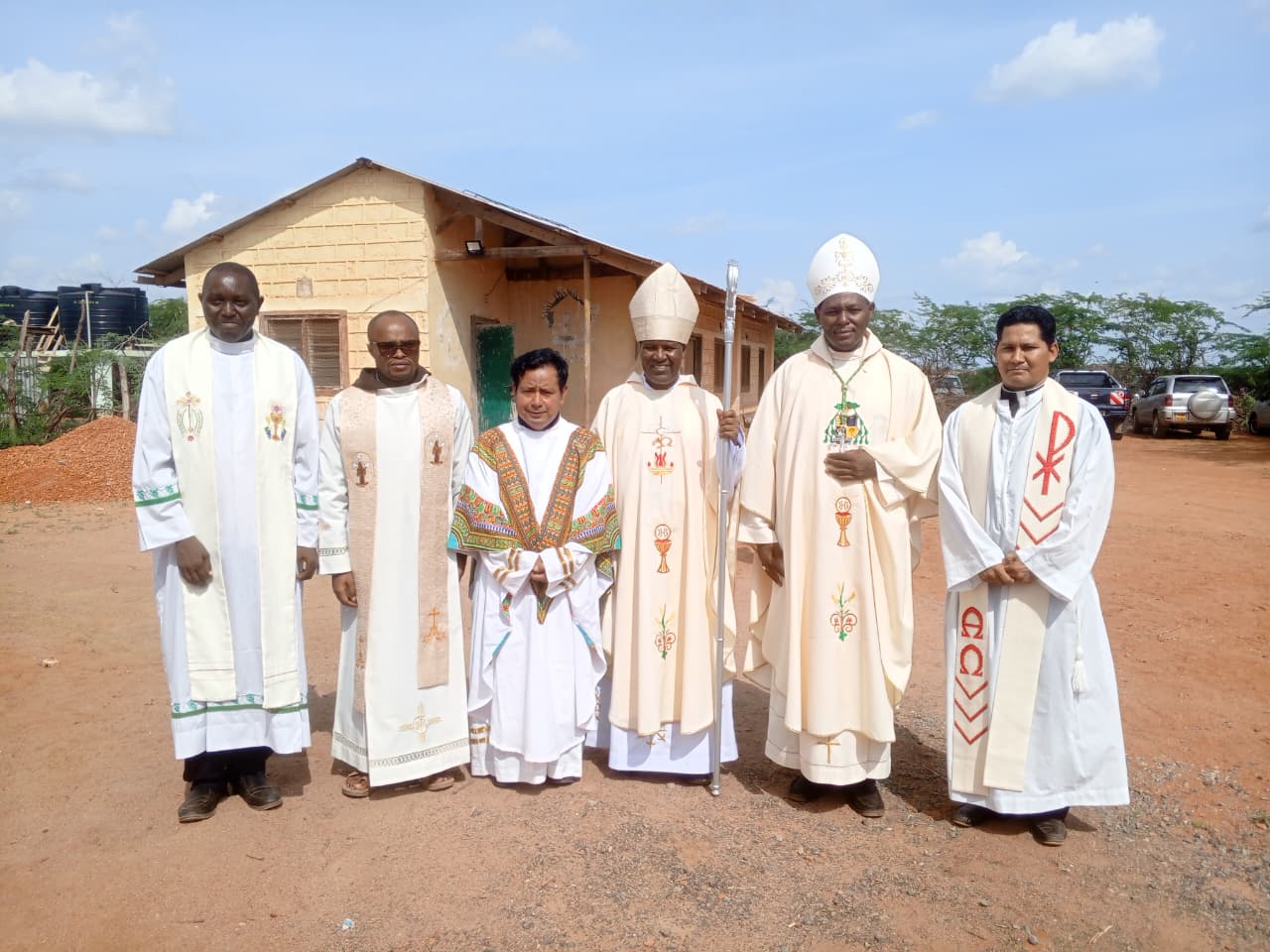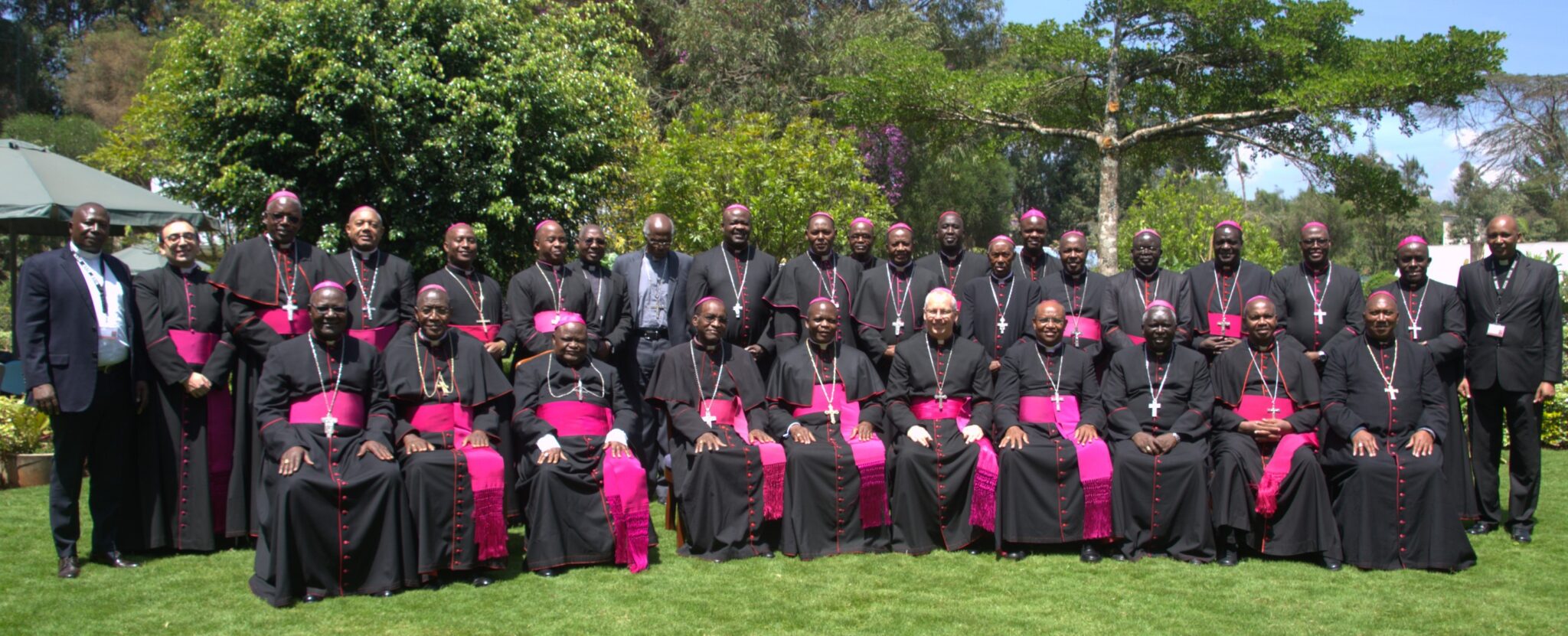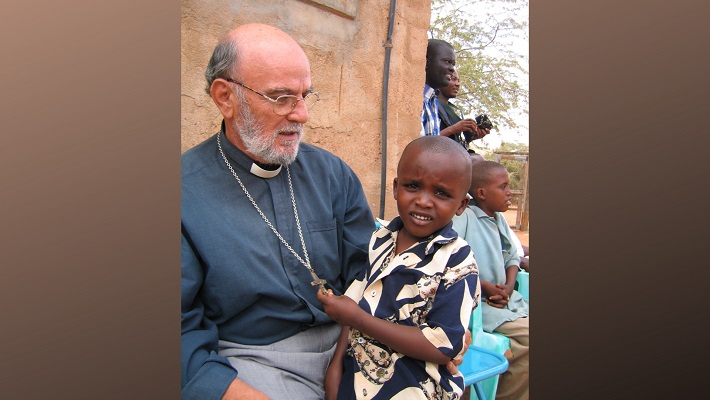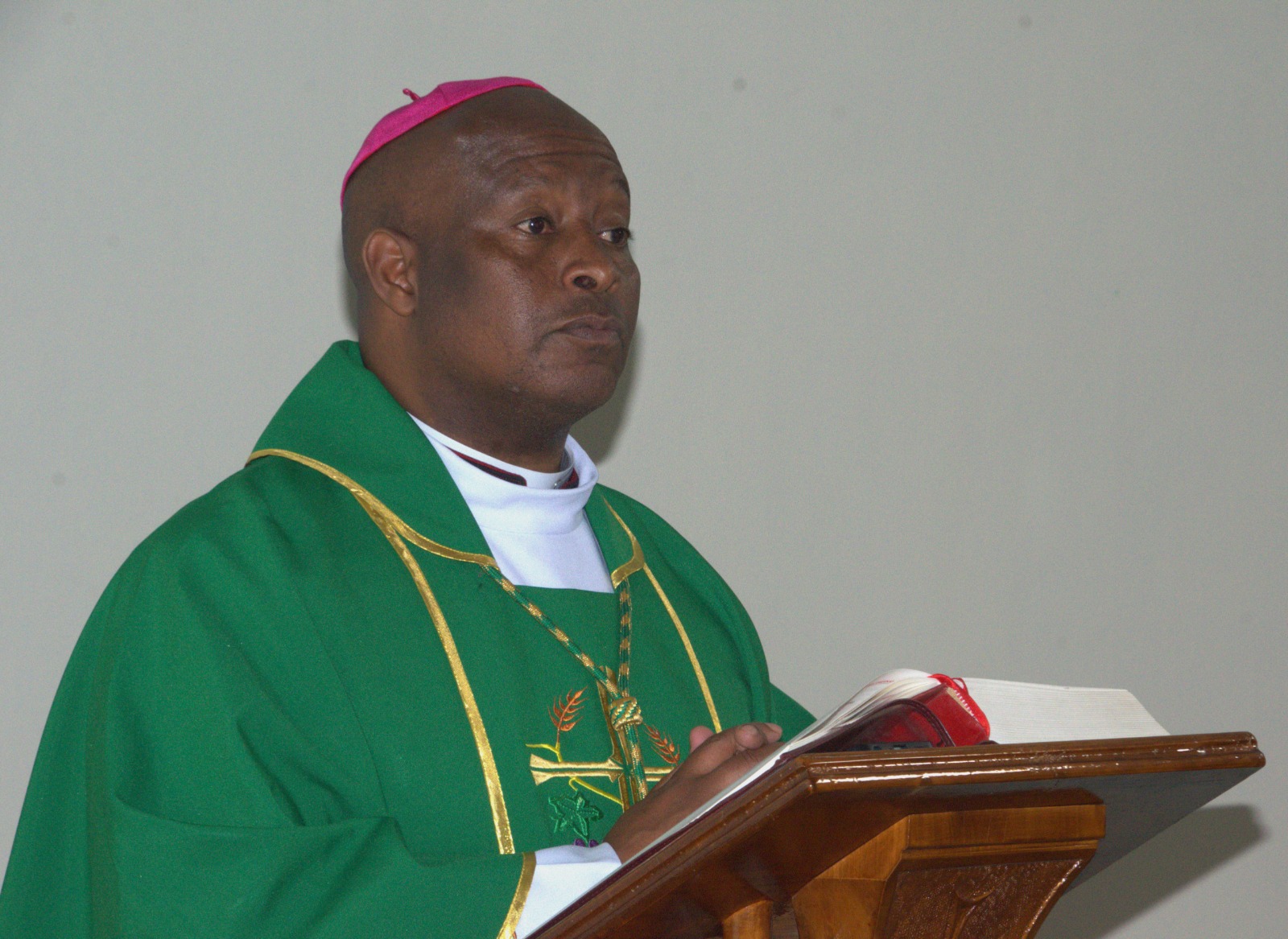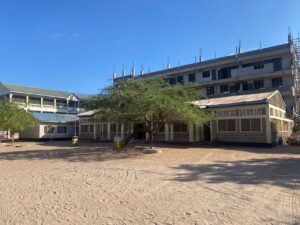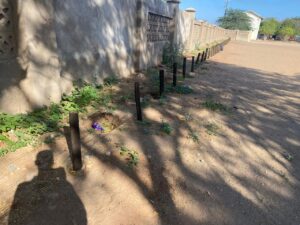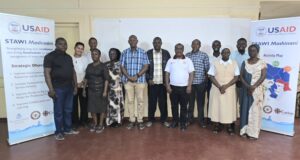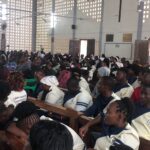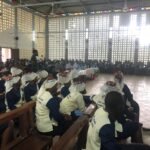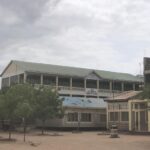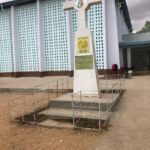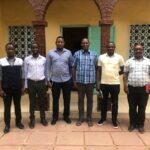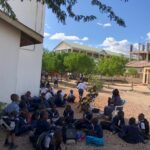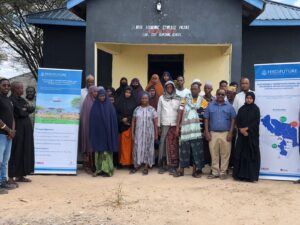Closing the Jubilee Year 2025 – Pilgrims of Hope- in Garissa Diocese, Kenya, Africa.
Closing the Jubilee Year 2025 – Pilgrims of Hope- in Garissa Diocese, Kenya, Africa.
On the memory of Saint Thomas Becket, December 29th, 2025.
What a wonderful day! Three (3) pivotal agendas in one colourful celebration!
- Closing the Holy Year of Hope 2025: “Pilgrims of Hope” – “Mahujaji wa matumaini”
- Family day and celebration of sacrament of Baptism
- Birthday of our shepherd, Bishop George Muthaka- turned 51!
- Closing the Holy Year of Hope 2025: “Pilgrims of Hope” – “Mahujaji wa matumaini”
In the Catholic Church, a ‘Jubilee’ or ‘Holy Year’ is a special year of forgiveness and reconciliation, in which people are invited to come back into the right relationship with God, with one another and with all of creation.
The solemn celebration for the closing of the Jubilee Year 2025 “Pilgrims of Hope” was presided by the ordinary of the diocese, George Muthaka OFM, Cap., intermingling family day celebration, fraternity life and birthday celebration of our humble bishop.
All this was done in the spirit of the octave of Christmas and concluding with the liturgical celebration of the Holy Family. The Holy Year 2025 Jubilee was officially opened by our late pope Francis in December 2024 with the Bull of indiction “Spes non confundit” “Hope does not disappoint” and concluded on December 28th, 2025. According to the Bull of indiction, the ordinary could designate churches or chapel in his territory for christians to do their pilgrimage and could obtain Jubilee indulgences. Two (2) were designated for this purpose.
The cathedral, “Our Lady of the Consolation” in Garissa Town and St. Francis of Assissi Church in Hola Town were designated where our christians renewed their faith – doing their spiritual journeys. The late pope Francis emphasised with the Bull of Indiction that “we should not lose hope amidst skepticism and pessimism of the world in which we meet discouraged people”. This holy year was granted to us to rekindle our faith, our mission to Christ. In Garissa diocese, the pilgrimages were organized and each group-apostolate/ movement included the following:
1.Personal intention of conversion (to deepen one’s faith and relationship with God).
2.Time of prayer, reflection, and seeking divine guidance and healing.
3.Attend the sacrament of Reconciliation (Pilgrims seeking divine intervention for various needs, including physical, emotional, or spiritual healing).
4.Fostering a sense of community and connection with the wider Catholic Church, often bringing together people from different backgrounds and traditions.
5.Teaching of the Church (Particular Theme – “Muhujaji wa matumaini”)
6.Reflect on the Footsteps of the Patron/matron Saint.
7.Celebration of the Holy Eucharist.
Bishop George Muthaka, expressed deep gratitude for the Christians who did their pilgrimage seeking the personnel, family, church and societal wellbeing. He added, even though we have come to an end of the Holy year 2025, God’s heart is not closed. It is always open for us to turn back to Him willingly to change.
- Family day & Baptism celebration
The sacred liturgy for this Sunday, December 28th, 2025, it introduces to us the Holy Family of Jesus, Mary and Joseph “Familia mtakatifu ya Maria na Yosefu” the holy family of Nazareth – as a role model for all families of all the times. In the Homily, Bishop Muthaka stressed the following:
“The Holy family of Nazareth is a deep sign of God’s infinite mercy for mankind. Jesus was born in a family. He himself made flesh, once more tells us that he loves us, he cares for us, He wants to save us. We belong to Him. Therefore, the birth of the child Jesus in a family is a way out of many ways showing us that he embraces humanity to fullness.” He added, “perfect families don’t exist on earth! Dear parents, you have a particular role as a father, as a mother to teach your children as the apostolic exhortation of our late pope Francis reminds us in the Amoris Laetitia, “A family’s living space could turn into a domestic church, a setting for the Eucharist, the presence of Christ seated at its table” (A.L.15). Only families who strive for holiness in raising up their children in accordance with the teachings of the church”. ‘Wazee, watoto wenu, wako wapi? (Parents, where are your children?’). “The family is thus the place where parents become their children’s first teachers in the faith.” (Amoris Laetitia 16.)
The bishop encouraged the faithful to imitate the life of the Holy Family of Nazareth. Mary as a loving mother and wife; Joseph as a hardworking, honest, tender father who raised Jesus according to God’s desire and to be obedient as Jesus was to his parents. He addressed the young people citing one of the books of sapientia, first reading from the book of Sirach 3:12: “My son, support your father in his old age, do not grieve him during his life”.
He urged parents not to be too soft nor too hard on their children. (Msiwachokoze watoto wenu – do not provoke them). Addressing the couples he quoted the letter of st. Paul to the Colossians which is taken from the second reading: “Wives, be subordinate to your husbands, as is proper in the Lord. Husbands, love your wives, and avoid any bitterness toward them. Children, obey your parents in everything, for this is pleasing to the Lord. Fathers, do not provoke your children, so they may not become discouraged” (Col. 3:18-21). Furthermore, he added that there is no superiority when wife and husband live in love being united in God, to give the best to their children.
He concluded his homily encouraging couples to respect and love one another fixing their eyes onto Jesus, Mary and Joseph- the holy family of Nazareth.
Eleven children received solemnly the sacrament which is the door to all other sacraments- baptism. People rejoiced in it as well.
- Bishop George Muthaka- turned 51!
The occasion was wrapped by expressing gratitude to God and to the church for granting years of experience to our bishop George Muthaka- He turned 51! CWA, the Catechists, PMC, MYM, Choir and other members granted him tokens as a sign of appreciation for being a good and joyful bishop for our diocese.
Bishop George was happy for such a warm celebration and expressed his gratitude to all Christians for their dedication and prayers.
In the celebration were almost all the priests from the entire diocese in this wonderful moment of prayer, fraternity and gratitude.
By: Fr. Julio Antonio Rodriguez, MFM.
Domine, fac me servum pacis tuae -“Lord, make me your servant of peace”

